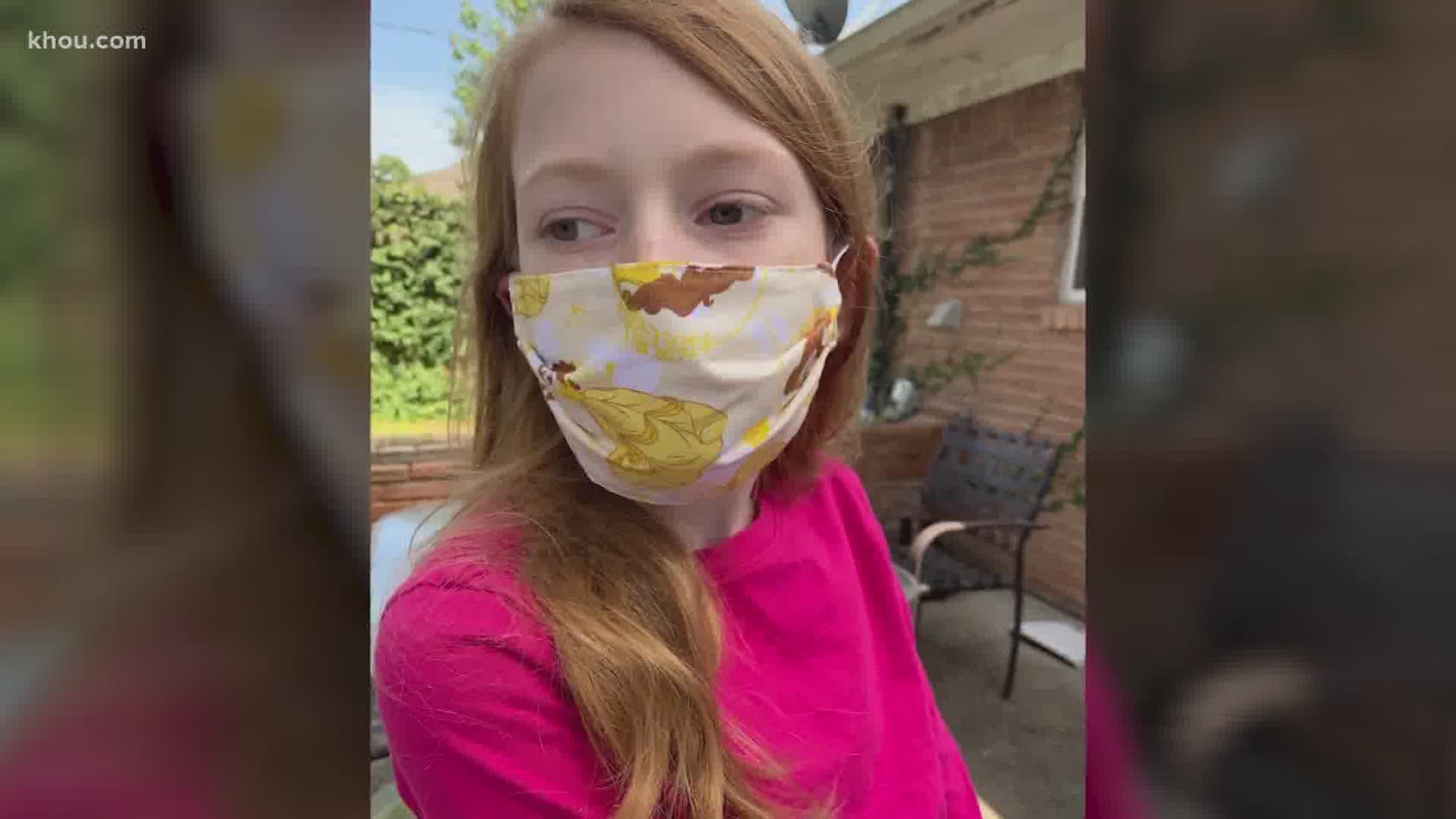HOUSTON — The CDC recommends children 2 years and older wear face masks in public. As more businesses around Greater Houston reopen, some of them, like Costco, are requiring kids as young as 2 years old wear masks.
“There is definitely very good rationale for masks,” said Dr. Pam Sanders, a pediatrician with Kelsey-Seybold Clinic.
Convincing some adults to wear face masks can be tough enough, but trying to convince small kids to wear them can seem downright impossible. Dr. Sanders offers some tips to help navigate this new piece of clothing for kids.
Dr. Sanders said the first step is to explain why the masks are necessary, and keep it simple.
“How this is helping to reduce the spread of germs...that we can help to be heroes and protect other people. We can even present it as a superhero costume," Dr. Sanders said.
Dr. Sanders said trying to make it fun and let them pick the color or fabric can help. The kids can even help make their masks at home as an arts and crafts project. For a tutorial, click here. Just be sure to make the masks small enough to fit a child’s face.
KHOU 11 photojournalist Chris Carr said between his daughter’s love of accessories and her seeing him wear a mask for work, 2-year-old Savannah was curious.
“So I just tied a little quick knot on it and I put it on her to see how she would do, and next thing I know, we’re walking out the house, and she has hers on," Carr said.
Dr. Sanders said parents setting a good example is key. If your little one’s still not sold on the idea, then practice.
“That child can practice wearing a mask at home. A parent can put it on. You can even get a stuffed animal or a doll or a teddy bear and let that child put the mask on," Dr. Sanders said.
For toddlers who resist, many strollers have rain shields which can accomplish the same goal.
Coronavirus symptoms
The symptoms of coronavirus can be similar to the flu or a bad cold. Symptoms include a fever, cough and shortness of breath, according to the Centers for Disease Control. Some patients also have nausea, body aches, headaches and stomach issues. Losing your sense of taste and/or smell can also be an early warning sign.
Most healthy people will have mild symptoms. A study of more than 72,000 patients by the Centers for Disease Control in China showed 80 percent of the cases there were mild.
But infections can cause pneumonia, severe acute respiratory syndrome, kidney failure and even death, according to the World Health Organization. Older people with underlying health conditions are most at risk for becoming seriously ill. However, U.S. experts are seeing a significant number of younger people being hospitalized, including some in ICU.
The CDC believes symptoms may appear anywhere from two to 14 days after being exposed.
Human coronaviruses are usually spread through...
- The air by coughing or sneezing
- Close personal contact, such as touching or shaking hands
- Touching an object or surface with the virus on it, then touching your mouth, nose or eyes before washing your hands.
Help stop the spread of coronavirus
- Stay home when you are sick.
- Eat and sleep separately from your family members
- Use different utensils and dishes
- Cover your cough or sneeze with your arm, not your hand.
- If you use a tissue, throw it in the trash.
- Follow social distancing
Lower your risk
- Wash your hands often with soap and water for at least 20 seconds. If soap and water are not available, use an alcohol-based hand sanitizer.
- Avoid touching your eyes, nose, and mouth with unwashed hands.
- Avoid close contact with people who are sick.
- Clean and disinfect frequently touched objects and surfaces.
- If you are 60 or over and have an underlying health condition such as cardiovascular disease, diabetes or respiratory illnesses like asthma or COPD, the World Health Organization advises you to try to avoid crowds or places where you might interact with people who are sick.
Get complete coverage of the coronavirus by texting 'FACTS' to 713-526-1111.

